Search Images
Browse Content (p. 1357)
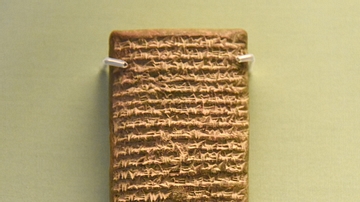
Image
A Royal Assyrian Letter
This clay tablet is a letter from Shamash-shum-ukin, the Assyrian crown prince of Babylon, to his father Esarhaddon, the king of Assyria. It concerns treasonable activities in Babylonia. Circa 670 BCE. From Nineveh, Mesopotamia, modern-day...
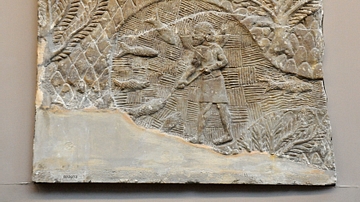
Image
Assyrian Fisherman
This alabaster bas-relief depicts a man fishing in a mountain pool or pond. Neo-Assyrian Period, reign of Sennacherib, 700-692 BCE. From Room XLIV (LL) of the South-West Palace at Nineveh (Kouyunjik), Mesopotamia, modern-day Iraq. (British...
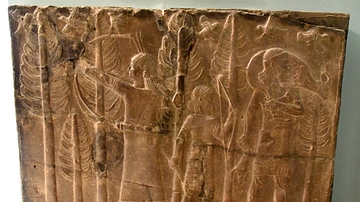
Image
Hunting Scene from Khorsabad
This unusual scene (in black stone) came from a detached building on the private side of the palace, possibly reserved for royal use. It was one of the few discoveries made at Khorsabad by Henry Layard. Neo-Assyrian Period, reign of Sargon...

Image
Tablet V of the Epic of Gilgamesh
This is the reverse side of the newly discovered tablet V of the Epic of Gilgamesh. Old-Babylonian Period, 2003-1595 BCE. From Southern Mesopotamia, modern-day Iraq. Currently housed in the Sulaymaniyah Museum, Iraqi Kurdistan.

Image
Phoenician Bronze Bowl from Nimrud
Over 150 bronze bowls were found in a palace at the city of Nimrud. These bowls were made in Phoenicia (modern-day Lebanese and Syrian coasts), and were brought to Nimrud as tribute or booty by one of the kings who campaigned in the west...
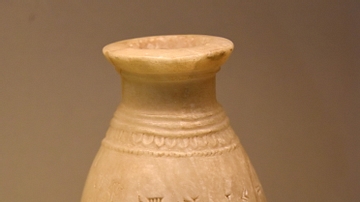
Image
Alabaster Jar of Sargon II
The cuneiform inscription on this alabaster vessel mentions that it belongs to king Sargon II. Neo-Assyrian Period, reign of Sargon II, 721-705 BCE. From the North-West Palace at Nimrud, Northern Mesopotamia, modern-day Iraq. (British Museum...
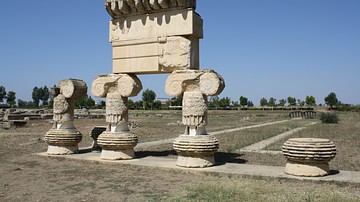
Image
Ionic Temple, Metapontum
Ionic capitals and architrave from a temple of unknown dedication at Metapontum, Magna Graecia, southern Italy. 480-470 BCE.

Image
Theatre, Metapontum
The mid-4th century BCE theatre at Metapontum, Magna Graecia, southern Italy.

Image
Temple of Hera, Metapontum
The Doric Temple of Hera at Metapontum, Magna Graecia, southern Italy. 570-530 BCE. Originally, the temple had 8x17 columns.

Image
Ionic Capital, Metapontum
An Ionic capital from a temple of unknown dedication at Metapontum, Magna Graecia, southern Italy. 480-470 BCE.